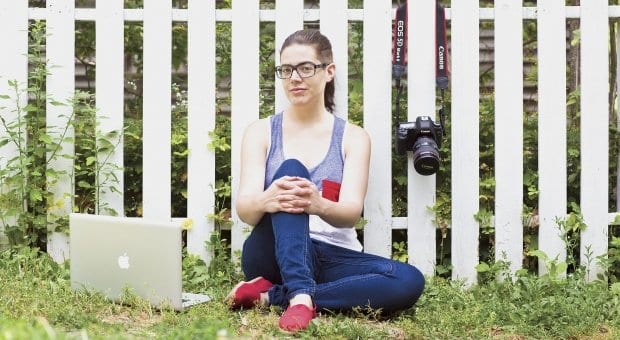
Nadine Bell’s web series Leslieville is about a group of lesbians in east-end Toronto. Credit: Adam Coish
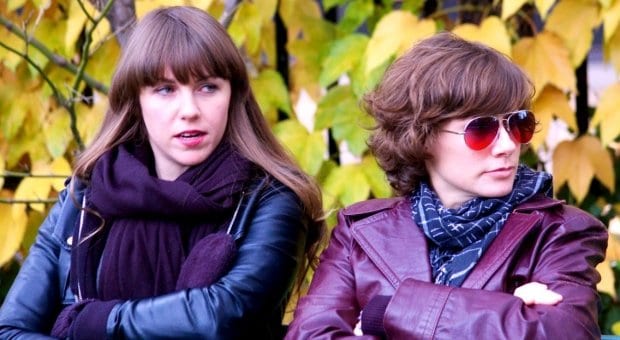
BJ Fletcher. Credit: Xtra
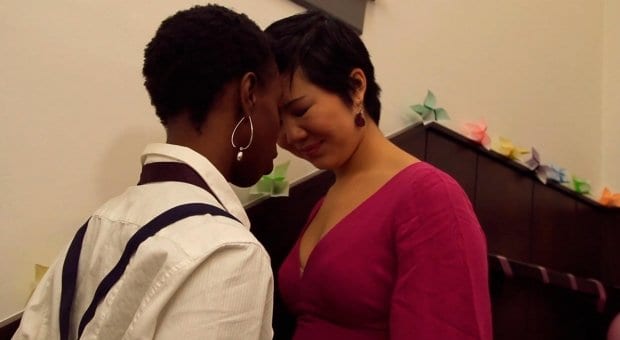
Leslieville. Credit: Xtra
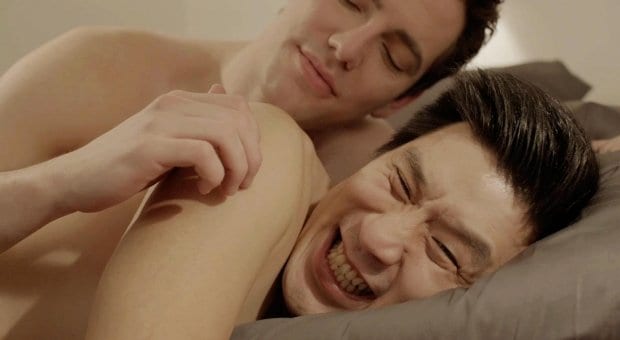
Boystown. Credit: Xtra
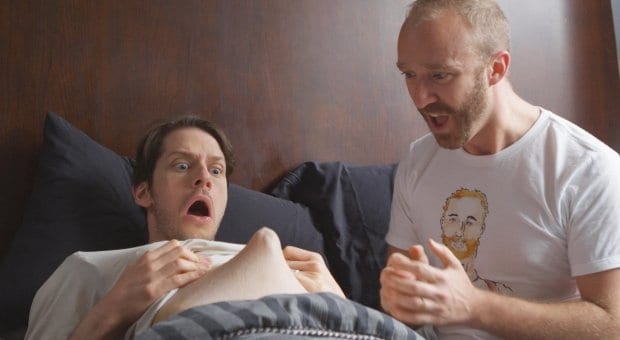
Gay Nerds. Credit: Xtra
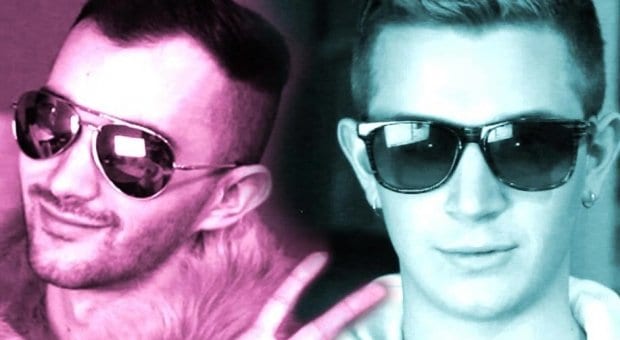
Who the F**k Is Nancy? Credit: Xtra
The future of queer storytelling is on the web.
In a recent piece in The Atlantic, journalist Ben Terris acknowledged the phenomenon of American web series The Outs and the wave of queer-themed projects making the rounds online, describing it as “an auspicious time for shows like this to find a home.” And with series like It Gets Betterish, Hunting Season, Husbands and Where the Bears Are generating tons of press and developing sizable followings, many studios and networks have had to rethink their programming strategies by calling attention to a large and very moneyed demographic hungry for LGBT content.
But perhaps most interesting in all of this is that a large number of these online LGBT shows are produced in Canada.
Out with Dad, BJ Fletcher: Private Eye, Leslieville, Seeking Simone, Gay Nerds and Who the F**k is Nancy? are just a few examples of homegrown web series that have been part of the wave of queer online content being shared on social media. In fact, in a press release issued by the Canadian Independent Production Fund, a record 157 web series applied to the organization for funding in 2013, and of those, a significant portion dealt with LGBT issues and themes relevant to the community.
So what is it about the web that is so attractive for queer Canadian filmmakers?
“I think LGBT storytellers are drawn to the web out of necessity,” says Toronto interdisciplinary artist Jordan Tannahill. “There is still the assumption … that LGBT stories are a niche market that can’t attract prime-time audiences. Most production companies and broadcasters won’t touch them. So artists who want to explore queer content are taking matters into their own hands, and web series are affordable, accessible ways to do that.”
Tannahill is no stranger to web-based storytelling. His performance piece rihannaboi95, which picked up a 2013 Dora Award for Best New Play for Young Audiences, uses live-streaming video to tell the story of a teenager who is bullied when footage of him dancing and lip-synching to Rihanna songs goes viral. Over the course of several days, viewers were encouraged to log on to a site and watch the boy’s story unfold in real time.
“To me [confessional YouTube videos] embody something vulnerable, raw, unrehearsed, urgent and candid. Whereas more conventional narrative mediums usually convey high production values [and] something carefully considered, rehearsed, dramatic and heightened. So I felt a web video was really the best aesthetic and conceptual fit for rihannaboi95. It just had the right ‘feel.’”
While Tannahill’s project embraces the do-it-yourself aesthetic of many contemporary viral videos, other queer storytellers have used video-sharing platforms like YouTube and Vimeo as a space where they can offer up more traditional, genre-driven alternatives to broadcast and cable television — that are nonetheless free of mainstream expectations.
“When we started BJ Fletcher back in 2008, ‘web series’ was pretty much a new concept on the web,” says Regan Latimer, executive producer of Bee Charmer Productions and a founding member of the Independent Web Series Creators of Canada. “One of the biggest draws for me back then … was the amount of creative freedom you had in this particular medium. There are no [industry] gatekeepers telling you ‘yes’ or ‘no’ or ‘change this or that.’ That kind of freedom is often hard to come by when trying to produce your own content and stay true to your creative vision.”
Latimer’s series, a comedy about a lesbian private eye and her sidekick, provided the filmmaker with the opportunity to create something that contained the playful elements of shows like Murder She Wrote, Laverne & Shirley and Cagney & Lacey while embracing a queer sensibility that was true to her own life.
Still, Latimer was adamant that the characters’ sexualities be an element of individual scenes rather than the theme of the entire series. “Their sexuality is never made [into] an issue; it’s just one aspect of who they are. It was important to me to create a series that showed lesbian characters in everyday life where their sexuality was not the main focus of attention.
“If shows believe they need to separate and segregate themselves from the pack based on the fact that they feature gay or lesbian characters, how do we then ever expect to be accepted into the mainstream?”
Filmmaker Austin Wong, creator of the upcoming web series Boystown, agrees. “None of the characters [on my series] are going through any coming-out crises. They’re well past that. They’re well adjusted, they have friends, they live in a city that accepts them, and now they’re just dealing with issues that come with trying to find a partner and trying to find your way … and some of the attendant issues that arise because they happen to be gay. But it’s not about [being gay]. I take that as a given.”
Based on Wong’s short film Gaysian, Boystown is about a small group of gay friends navigating the ups and downs of Toronto’s dating scene. Wong wanted the show to explore universal themes and embrace the comedic sensibilities of hit shows like Sex and the City and Modern Family while adding something to the mix that hasn’t really been available on mainstream television — a gay Asian protagonist.
“I never see Asians in lead roles, and that was something that always bothered me, and if they were introduced, there was usually some kind of stereotypical reason for them to be there — like they were an exchange student or super good at math, or they were the best doctor. But very rarely is it that they’re just a person who has issues that aren’t necessarily related to being Asian.
“With [Boystown] and with web series in general, I saw a really good opportunity to have both queer content out there, as well as having an Asian lead — exploring stories that I haven’t seen told and in a comedy format that I think we’re missing.”
For other web-content creators, like Leslieville’s Nadine Bell, online series play a very important role in LGBT self-representation. “All minority groups seek to represent themselves, and though our community is quite large … it is continually underrepresented, [and] when we do get attention in mainstream stories, it’s very much stereotypical or comedic relief or the version of the LGBT person the majority is comfortable with. With the internet, we can make our stories available to our community easily, and also in some countries, the internet is the only window to an open LGBT lifestyle people have.”
Which, of course, brings up the question of national output. Although none of the filmmakers who spoke to Xtra could really pinpoint why Canadians have been so prolific on the web-series scene, the general consensus is that the combination of a web-savvy population and progressive national politics allowed LGBT filmmakers to feel comfortable sharing their stories with others, which in turn has helped to lay the groundwork for community outreach.
“We’re not simply telling stories for ourselves, who are lucky enough to live in a country that is open and supportive of LGBT people,” Bell says. “We are telling them for those who don’t have those freedoms so they can have hope and know they are not alone.”
Wong agrees. “Younger people are turning more to the internet to watch things than television. So with this generation, even people in small towns can seek it out, stumble upon things, and web series like [my show] will show them another world that has diversity both with sexuality and with race.”
And while web-based storytelling creates new and exciting opportunities for LGBT storytellers, Tannahill sees the movement more as an extension of a preexisting cultural tradition within the community.
“I think queers are attracted to the vanguard. LGBT web series are simply a continuation of a rich history of queer countercultural, on-the-fringes art-making. I think our community has always taken to new forms, ones often overlooked by the mainstream, because we see their potential as outlets to express otherness.
“Web narrative is on the periphery, and so are we.”
Queer Canadian web series: A primer (see photo gallery above)
BJ Fletcher: Private Eye
A comedy about private investigator Beatrix Jane (BJ) Fletcher and her best friend and assistant, Georgia (George) Drew, “as they grapple with everything from running surveillance to going undercover to foiling would-be saboteurs, all with varying degrees of success.”
Leslieville
A drama series about a group of lesbian friends navigating life and love in the east end of Toronto.
Boystown
Based on Wong’s short film Gaysian, which was recently accepted into the Toronto Reel Asian International Film Festival. A comedy about gay single boys Steve, Aaron and Geoff (and their gal-pal Amanda), who live in Toronto and search for love and sex in their city.
rihannaboi95
A solo show about a queer teen dealing with the fallout of a video, which goes viral, he posts of himself dancing to a Rihanna song.
Out with Dad
A drama series about teenaged lesbian Rose and her single father Nathan that includes themes like the challenge of coming out to parents and other family struggles.
Seeking Simone
A lesbian actress tries to make sense of the online dating community and often fails — horribly and hilariously — at it.
Gay Nerds
A group of outsiders who don’t fit the traditional “gay” mould use pop culture to make sense of the world around them. What if dropping stuff off at an ex-boyfriend’s house was like being attacked by a T-rex in Jurassic Park? Or cruising an online sex app was like entering The Matrix? Parodies galore.
Who the F**k is Nancy?
Two fabulous best friends drink, dance and want to be famous, all the while accruing as many Twitter followers as is humanly possible.
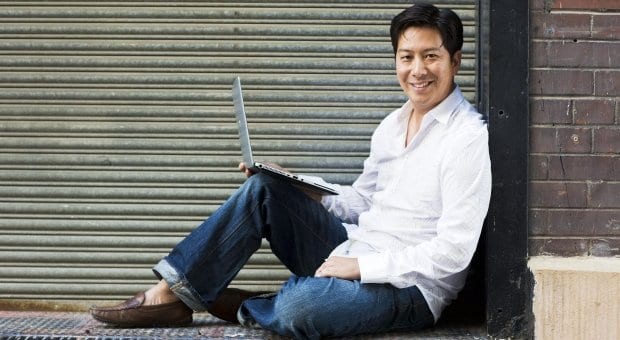
 Why you can trust Xtra
Why you can trust Xtra


